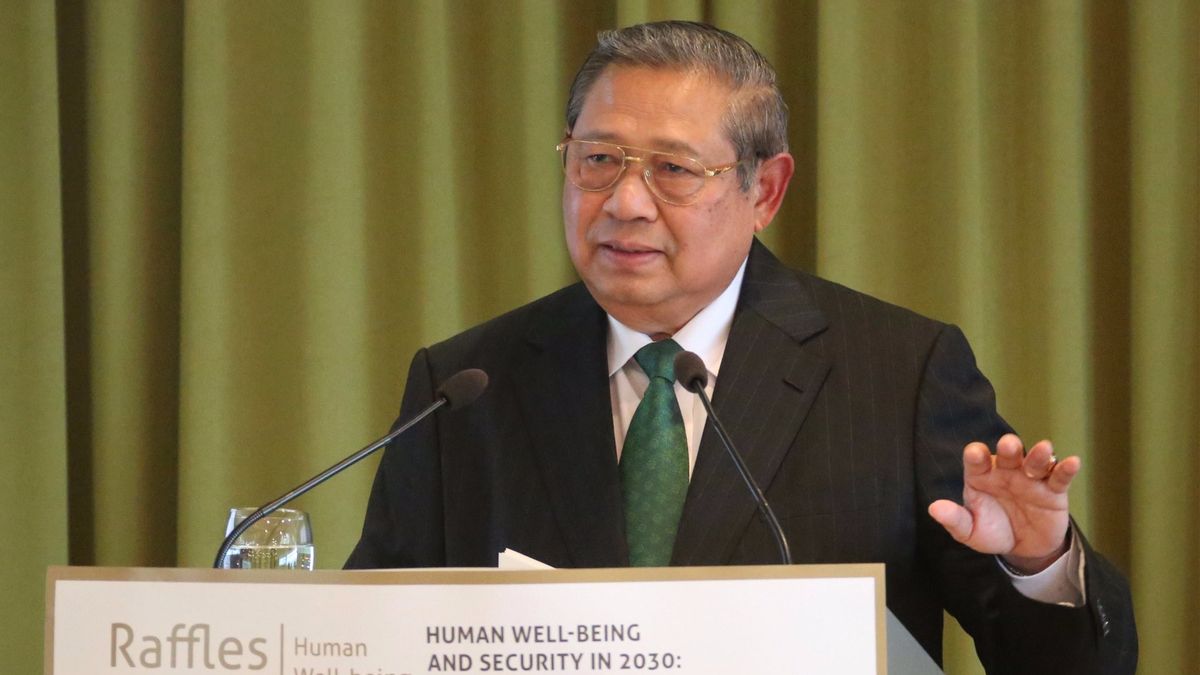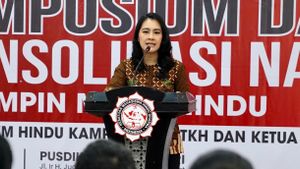JAKARTA - The 1997-1998 economic recession was Indonesia's toughest period. At that time, the government turned its brains to stabilize the economy. Every way it is done. What can you do with the option of taking foreign debt. Debt from the International Monetary Fund (IMF) organization, especially.
Efforts are like an instant way out of the crisis. Instead of succeeding, the debt failed to be repaid. Even though the President of Indonesia was increasingly changing from Suharto to Megawati. Finally, Indonesia just broke away from the patients'' of the IMF during the time of Susilo Bambang Yudhoyono (SBY).
Economic growth during the reign of Suharto and the New Order (Orba) was enormous. The owner of the power succeeded in stabilizing the economy which was in disarray of the Old Order era. Suharto's success perpetuated a new breakthrough.
He took advantage of the services of a series of economists who graduated from the University of California Berkeley, United States (US) to stabilize the economy. Later they were nicknamed the Berkeley Mafia. The corrupt Indonesian economy has turned stable. In fact, it is growing rapidly.
This condition lasted for a long time. In fact, success was not accompanied by maturity in the politics of New Order officials. All officials often perpetuate efforts to enrich themselves and their lives. While the fate of the people must be sacrificed.
The climate of behavior for Indonesia did not move much when the economic recession hit the archipelago in 1997. The Indonesian side was affected. The rupiah exchange rate plummeted, the company went out of business, unemployment was everywhere, and people's purchasing power decreased.
This condition made the government excited. The only option that makes the most sense is to perpetuate foreign loans to world financial institutions. One of the loan applications made came from the IMF's pocket. The monetary fund organization is willing to provide Indonesia with a large loan.
Even though the market economy appears to provide a positive appearance for political democratization, there is a view that the liberal economic principle actually results in the country's economic sovereignty experiencing erosion. The relationship between the IMF and the government in the 1997 to 1998 era, has led to a debate between state sovereignty and the economy on the one hand, while on the other hand, the debate between the legal sovereignty of market mechanisms and political democratization.
Empirically in any economic system, it has loopholes and gaps that can understand that there is no market mechanism that works perfectly with the principles of the free market. Even though the world knows the free market, it doesn't work to produce an efficient market," said Basuki Agus Suparno in the book Reform & The Fall of Suharto (2012).
New Order's studies against recession have missed many. As a result, Suharto and New Order stepped down in 1998. Indonesia's debt to the IMF and other institutions was continued to its successor: Bacharuddin Jusuf Habibie. Instead of focusing on paying off the IMF's debt, Habibie's time was spent to stabilize the economy.
The same effort was also made by Abdurrahman Wahid (Gus Dur), to Megawati Soekarnoputri. Both have not been able to pay off debts to the IMF. However, everything changed for us SBY to take over the position of Indonesia's number one person.
The 6th President of Indonesia has a strong commitment to pay off the IMF's debt, which at that time reached US$9.1 billion or equivalent to 140 trillion in the current exchange rate. He, who began to rule in 2004, began to pay in installments at the beginning of US$1.3 billion. As a result, the remaining debt became 7.8 billion US dollars.
He initially planned the IMF debt to be paid off in 2008. In fact, SBY's plan was even sooner than two years. The owner of the power of attorney was able to pay off all debts to the IMF in just two years, or in 2006. The SBY administration paid it in installments twice in June and October 2006.
Everything can be realized because the Indonesian economy is slowly improving. Moreover, SBY considers the debt with the IMF to make Indonesia continue to lose by paying its rising interest if it is not immediately relaxed. However, the government's move at that time was limited to paying off the IMF's debt. Meanwhile, other institutions have not been paid.
Presidential Instruction No. 5 of 2003 remains valid despite the change of government in 2004. The Presidential Instruction is a legal tool to carry out economic liberalization after relations with the IMF. The Indonesian government announced that it would pay debts to the remaining IMF, worth a total of 7.8 billion US dollars, within two years.
The amount is the remaining debt of Indonesia to the IMF amounting to 25 billion US dollars during the crisis, politically the decision is correct, as a step to escape from the expansion and intervention of economic policy that has continued since the 1997 crisis. The debt payment was made in two stages, in June 2006 amounting to 3.75 billion US dollars and the remaining 3.2 billion US dollars was paid in October," explained Garda Maeswara in the book Susilo Bambang Yudhoyono (2009).
The English, Chinese, Japanese, Arabic, and French versions are automatically generated by the AI. So there may still be inaccuracies in translating, please always see Indonesian as our main language. (system supported by DigitalSiber.id)









